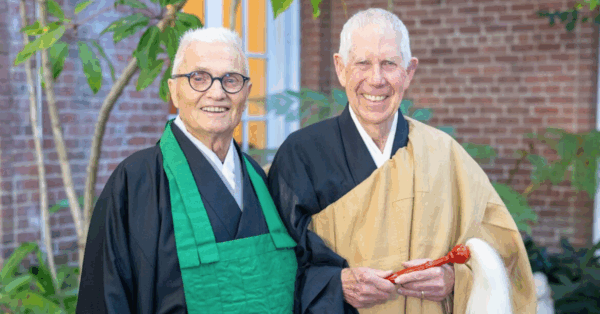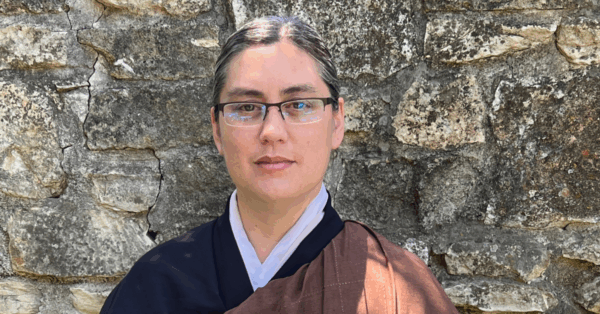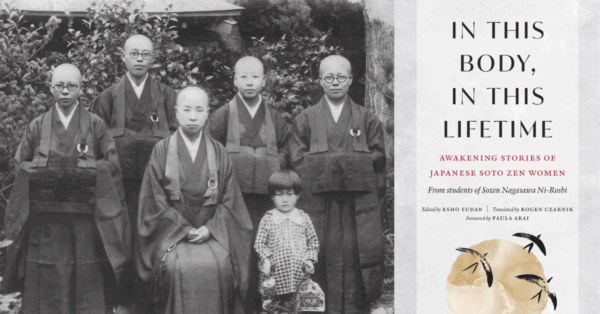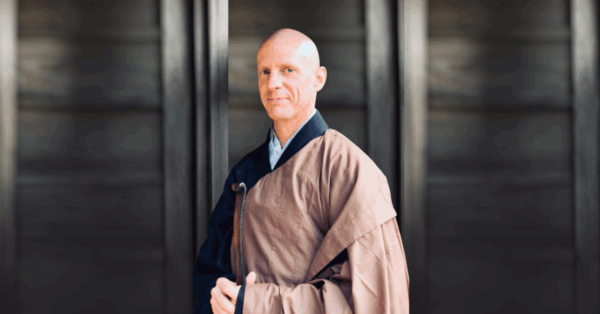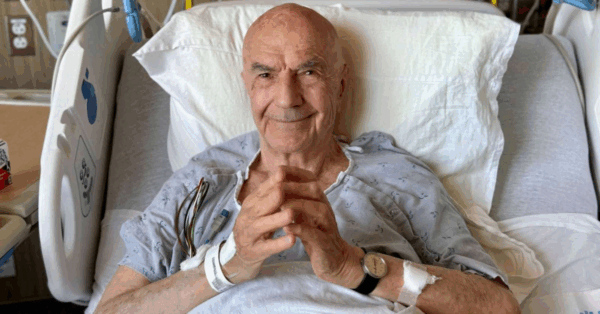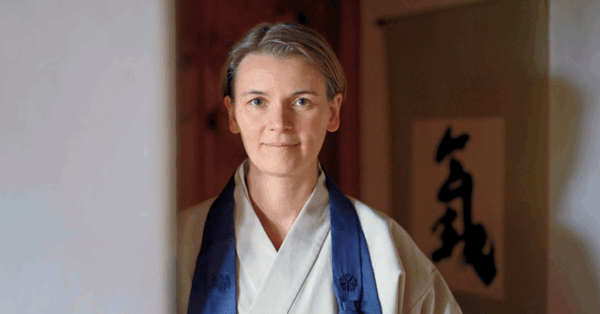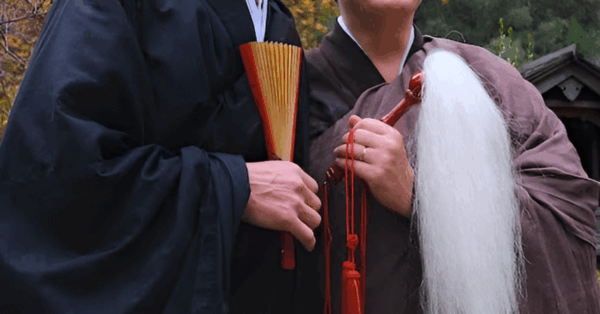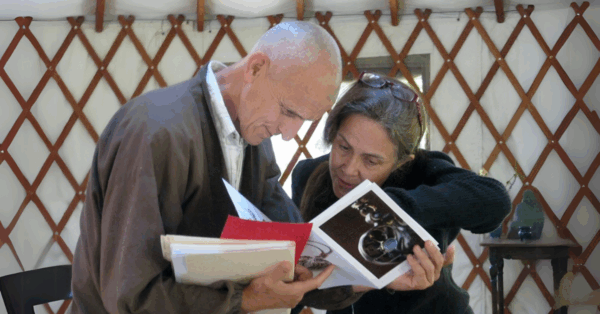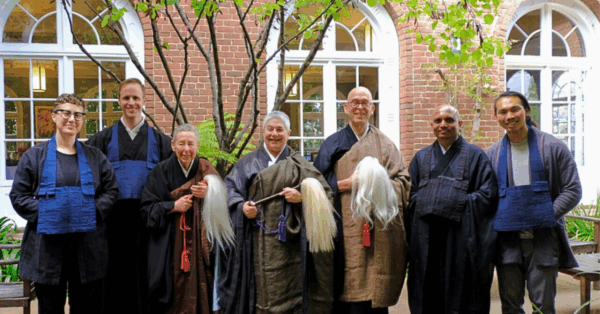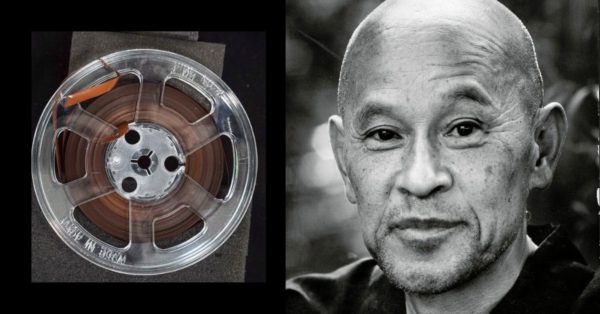
To listen to this talk, “When You Have A New Experience,” see the Suzuki Roshi Audio Archive where it is listed on the right side.
This talk was given by Suzuki Roshi at Tassajara on the evening of August 20, 1967.
Description:
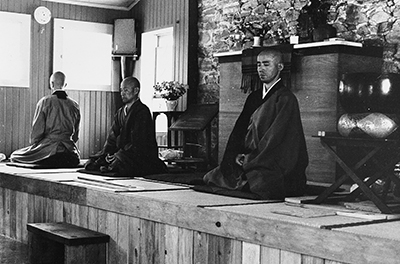
Richard Baker, Shunryu Suzuki, and Kobun Chino in the old zendo at Tassajara, c. 1968
This talk was given on the evening of the same day of the first Tassajara sesshin as the last one discussed. The beginning of the talk was not recorded, and according to notes on the original transcript, Suzuki Roshi was talking about “four stages … belief, intellectual understanding, practice, and enlightenment” (these are mentioned in the Lotus Sutra). Naturally, for a Zen talk, part of the advice given during the talk is that students should not rely on these as a series of progressions. In fact, Suzuki Roshi cautions with a laugh, the stages may occur in a different order altogether, before he goes on to say, “actually there is no stage [laughs, laughter]. I am intellectualizing for, you know, some—to help you, that’s all.” (11:14) Students should also not be attached to giving their experience a name like “kensho,” the traditional “seeing one’s own nature” definition of enlightenment, even if that was something they had been striving to attain in their practice.
The subject of the talk reflects that he sees members of the new monastic community trying to deal with breakthroughs they may have had as part of their now intensive training at Tassajara, which he knew would be even more likely during a sesshin: “I saw many students who is very afraid of new—their new experience. It is so unusual that you become afraid of it, but there is no need to be afraid of it.” (23:22)
He encourages them to see a teacher when they have such an experience—and during the sesshin there would be more opportunities to speak with a teacher than usual—but the bottom line is that they have to continue their practice from where they are, digesting this new experience, and incorporating it into their lives—”act bravely according to the new experience.” (4:11) It is their own lives they have to make sense of, and to practice with: “Then you will have true meaning of your own life. Religion is through and through a personal thing. Religion is just for yourself, not for others.” (20:28)
At the same time, since Zen always sees things from both sides, this individual experience and practice is also what connects the practitioner to the Buddha’s own practice; it verifies the Buddha’s practice, and is verified by Buddha’s practice. Understanding that point is the fourth stage. This is where studying the teachings, the second stage, also helps: “All those teachings are each drops of—drop of the ancient sages—drop of blood of ancient sages. So we have to study with our warm heart, not just by your brain.” (18:15)
- To view all of the talks that have currently been released and to learn more about this project, see the Suzuki Roshi Audio Archive.
- Please donate to the preservation of San Francisco Zen Center’s audio archives.
- Non-monetary support is also welcome. This collection of talks is a living, evolving archive that depends on input from people like you to unlock the wisdom it contains. Several of the newly discovered talks are in need of transcription, and nearly all can benefit from listeners adding descriptions and keyword tags to improve searchability. To get started, visit the Suzuki Roshi Audio Archive page for many ways to engage.


